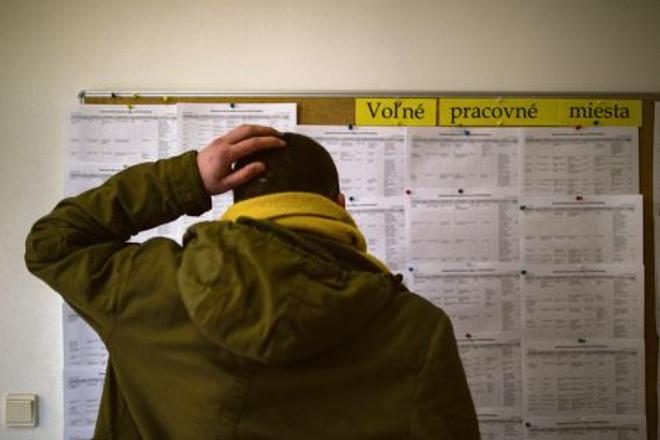SLOVAKIA continues to suffer from high unemployment, with its biggest sore points being joblessness among young people and the long-term unemployment. To combat the problem, the government is considering using EU funds, including those which were originally allocated for other purposes.
The unemployment rate in Slovakia decreased to 14.41 percent in April. The 0.27 percent month-on-month drop was welcomed by the Labour Ministry, but analysts attribute the decrease to higher demand for seasonal work. Analysts with the National Bank of Slovakia (NBS), country’s central bank, say that when the seasonal influence is taken out of the picture, the number of unemployed actually rose slightly, the TASR newswire wrote.
Ján Richter, the Minister of Labour, Social Affairs and Family, identifies three risk groups among the unemployed. The first one includes young people up to 25 years of age, who represent over 76,000 of the nearly 400,000 jobseekers currently registered at job offices. The second risk group is comprised of unemployed people aged 50 and over, of whom there are around 100,000 and the third - and biggest – group, are the long-term unemployed, numbering over 233,000.
Moreover, NBS analysts noted that growth in GDP and industrial production is still not adequate enough to bring about a more pronounced improvement in terms of the creation of permanent jobs, and thus the process of job creation has slowed.
EU funds
Earlier this year the Slovak government identified €612 million, out of a total of €1.24 billion in EU funds to be spent by the end of 2013 as being at risk of not being spent, the press department of the Slovak cabinet told The Slovak Spectator. After adoption of crisis management measures this sum decreased to €343 million.
Prime Minister Robert Fico has said his priority is to use as much of this money as possible to tackle unemployment among young people as well as people aged 50 and older. However, Ľubomír Vážny, deputy prime minister for investments, believes that it would be impossible to use all of the at-risk funds for reduction of unemployment in a reasonable way. He estimates that such a programme would only be able to absorb between €30 million and €100 million, the Pravda daily wrote.
Experts have warned the government against providing direct financial support to companies for employing people.
“Money from EU funds can increase employment for a certain period of time,” said Ivan Kuhn, an analyst with the Conservative Institute of M. R. Štefánik, as quoted by the Pravda daily, adding that after the programme is over, firms would return to standard business practices, wherein they would hire more people if they receive more orders, but lay them off if their orders decrease. He sees construction of roads as a better way to spend EU funds, because it would create jobs and the newly built highways would facilitate the arrival of new investors in the eastern regions of Slovakia, which suffer from high unemployment. Kuhn warned against using EU funds to support companies chosen in advance.
The EU has also identified youth unemployment as a major problem and is cooperating with member states to reallocate EU funds from the 2007-2013 programming period in order to tackle the problem, with the deadline for Slovakia to send its last invoice for reimbursement from this programming period being the end of 2015. Slovakia was identified as one of eight countries, along with Greece, Spain, Ireland, Italy, Latvia, Lithuania and Portugal, for which the situation is most critical.



 EU funds could help to reduce unemployment (source: SME)
EU funds could help to reduce unemployment (source: SME)